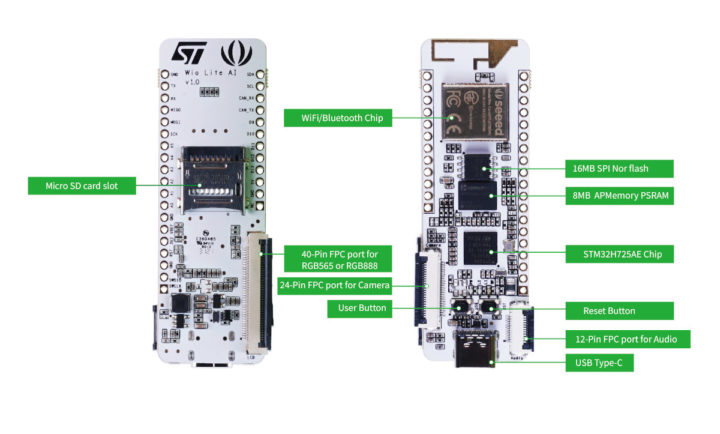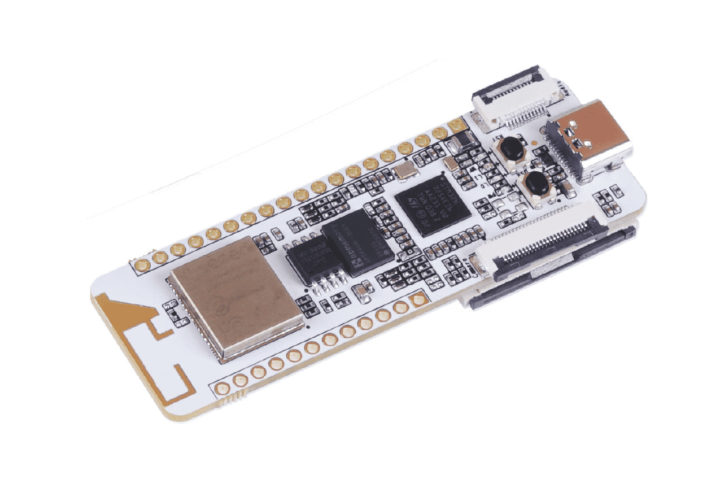Wio Lite AI is another development board from Seeed Studio’s “Wio Lite” family. The board is based on STMicro STM32H725A Cortex-M7 microcontroller with a dual-band WiFi and Bluetooth module, as well as camera & display interfaces for connected AI vision applications.
The board builds upon the earlier Wio Lite and Wio Lite W600 boards with built-in wireless connectivity but offers much more processing power for computer vision or other applications.
- MCU – STMicro STM32H725AE Arm Cortex-M7 microcontroller @ 550MHz with DSP instructions, 512 KB flash, 564 KB RAM
- Memory – 8MB PSRAM (from AP Memory)
- Storage – 16MB SPI NOR flash and MicroSD card slot
- Display I/F – 40-pin FPC connector for LCD RGB565 or RGB888 displays
- Camera – 24-pin FPC connector for DCMI camera (OV2640)
- Audio – 12-pin FPC connector for audio
- Connectivity – Dual-band 2.4GHz / 5GHz Wi-Fi and Bluetooth 5.1
- Expansion – Feather compatible header with 6x analog pins, 14x digital pins, 1x UART, 1x I2C, and ICSP programming signals
- Power Supply – 5V/3A via USB Type-C port
- Dimensions – 70.3 x 26mm
- Weight – 9 grams

Typical applications for the board include data collection devices for Machine Learning, hand-held device IoT controllers, STEM education, motor drive and application control, alarm systems, video intercom, and HVAC. So it’s not only for AI vision applications…
Seeed Studio’s Wio Lite AI development board is up for pre-order now for $29 with shipping scheduled to start on September 20, 2021.

Jean-Luc started CNX Software in 2010 as a part-time endeavor, before quitting his job as a software engineering manager, and starting to write daily news, and reviews full time later in 2011.
Support CNX Software! Donate via cryptocurrencies, become a Patron on Patreon, or purchase goods on Amazon or Aliexpress





